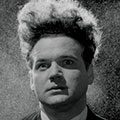In our Workshop this week we were encouraged to consider a “weekly media moment” – an interesting or instructive encounter we had with some form of media. Last night I went to see a conversation between Ben Birchall and Starlee Kine at the Wheeler Centre on all things podcasting and storytelling.
I don’t know why but a lot of American podcast hosts are in town at the moment. PJ Vogt (of Reply All) appeared at the Sydney Writers Festival over the weekend, and Hrishikesh Hirway (of Song Exploder) will also be at the Wheeler Centre in a couple of weeks. Perhaps they’re on some kind of podcast host field trip, I’m not sure.
Starlee is a journalist, writer and radio producer with whom I first became familiar through her work with This American Life, where she worked as a story producer for over a decade. She’s something of a confessional storyteller: her radio stories generally revolve around events in her own life, and as such have an irresistibly charming personal touch to them. I find this kind of personal memoir to be among the absolute best form of media when done right, but unfortunately it’s very difficult to do right and can often result in boring, interminable waffling from people I don’t care about.
Last year Starlee wrote and produced the first season of her new podcast Mystery Show, which for many reasons I consider to be the best podcast ever made. It’s a complete reinvention of the form, differentiating itself from the accepted “formats” in common use, and Starlee’s personality and open, conversational nature give rise to some incredible conversations from unlikely places.
To hear her speak was wonderfully compelling. Among other topics she described the process she follows to create, develop and execute her ideas into finished form, which is something radio producers rarely do for competitive reasons. The thing that surprised me most was that Mystery Show existed as a pilot episode for two years while she searched for a platform that would take on the show. (Presumably This American Life passed on it to make Serial – probably a sound decision.)
I’d never really considered that creating a podcast pilot and trying to sell it (as a TV producer might do) could be one way to get a podcast idea off the ground. I’ve created a couple of podcasts in the past but they were small exercises between me and my friends, not intended to be treated too seriously, and we just kept pumping out episodes as quickly as we could make them.
Obviously in Australia there are no large-scale podcast networks like PRX or Radiotopia, which makes it difficult for Australians to sell podcast ideas (other than to Radio National), but since Science Vs made it to Gimlet Media last year it’s not out of the realm of possibility that an Australian podcast might again be picked up in the U.S.
Now I just need an idea…
